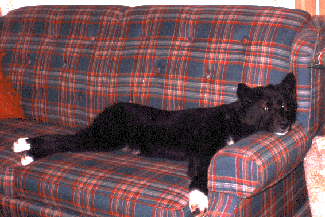Table of Contents
*
Dreams & Passions!
*
The Media: I said that!?!
*
A Chat about Breeding: Gait
*
Inuit Dogs on the Web
*
Bannock
*
Behavioral Notebook: Getting Personal
*
Janice Howls: Big Dogs are Here to Stay
*
IMHO: On Being Doggie
Navigating This
Site
Index of articles by subject
Index
of back issues by volume number
Search The
Fan Hitch
Articles
to download and print
Ordering
Ken MacRury's Thesis
Our
comprehensive list of resources
Talk
to The Fan
Hitch
The Fan Hitch
home page
ISDI
home page
Editor's/Publisher's Statement
Editor: Sue Hamilton
Webmaster: Mark Hamilton
The Fan Hitch Website
and Publications of the Inuit Sled
Dog– the quarterly Journal (retired in 2018)
and PostScript – are
dedicated to the aboriginal landrace
traditional Inuit Sled Dog as well as related
Inuit culture and traditions.
PostScript is
published intermittently as material
becomes available. Online access is free at: https://thefanhitch.org
PostScript welcomes your
letters, stories, comments and The editorial
staff reserves the right to edit submissions
used for publication.
Contents of The Fan Hitch Website and its publications are protected by international copyright laws. No photo, drawing or text may be reproduced in any form without written consent. Webmasters please note: written consent is necessary before linking this site to yours! Please forward requests to Sue Hamilton, 55 Town Line Rd., Harwinton, Connecticut 06791, USA or mail@thefanhitch.org

The Media: I Said That?!?
by Sue Hamilton
In the past month I have been asked to be interviewed by reporters from two different newspapers. Over the years I have developed an approach-avoidance conflict regarding granting such requests. On the one hand, I am always eager to find opportunities to educate the public on responsible pet ownership in general as well as to provide an understanding of my chosen breed, and why it is not suitable for everyone. On the other hand, every time such an occasion presents itself, I get a knot in the pit of my stomach wondering how the information I provide will be interpreted and presented, especially in the printed media.
The first interview was not spontaneous. It was arranged by appointment. This gave me a chance to provide written information on Mark and me (a brief biography) and a history on the ISD. The second interview was done over the phone. I was returning a call from a reporter, and was fully intending to "take control" of the situation by arranging a face-to-face with him, with preprinted material provided in advance. Instead what I got was an eager young man, obviously wearing a headset, who I could hear clacking away on his keyboard as he asked me some pretty intelligent questions. Clearly I was not in charge of the playing field, but since he sounded to be a rather fast typer, I got the impression that if I chose my words carefully, he would get my comments verbatim.
While both stories were generally good, presenting some important points I wanted to make, they did contain a few errors, some only would be known to a small select group. One article contained an error that I dread the casual pet owner will take as "the truth" and the experienced northern dog people will interpret as my being a whacko.
Frustrated by the lack of technical perfection, I consulted with a friend of mine who is a public information officer. I bemoaned to him my dilemma. Should I forevermore refuse all contact with the media? What could I do to prevent these corruptions of my words and intentions? "Not much," was his reply. I was shocked. Here was a man whose professional life involved working with the media for both routine and emergency press releases. His recommendations were 1) provide written material (been there...) and don't always respond to their questions, but talk about what YOU want to talk about (...and done that). He went on to say that it was a no-no to ask the reporter to have the opportunity to review and suggest "corrections" to the copy before it appeared in print and that the quality of the final version would naturally vary from paper to paper. My friend went on to say that if I tried to put things right in the form of a letter to the editor or by requesting a correction, even if they were published, A) the readers would have lost the connection or wouldn't care and B) I might burn a bridge with the reporter, ending the possibility of future stories.
I present this to you, dear readers, as I am certain that sometime you either have or will be approached as have I by reporters who think you have something to say that would be interesting, entertaining or important. If it turned out OK, that's great, but don't count on a perfect record. And for those of you who have yet to be so honored, be well prepared.
And for goodness sake, NO, our dogs' basic diet is not corn and rice!